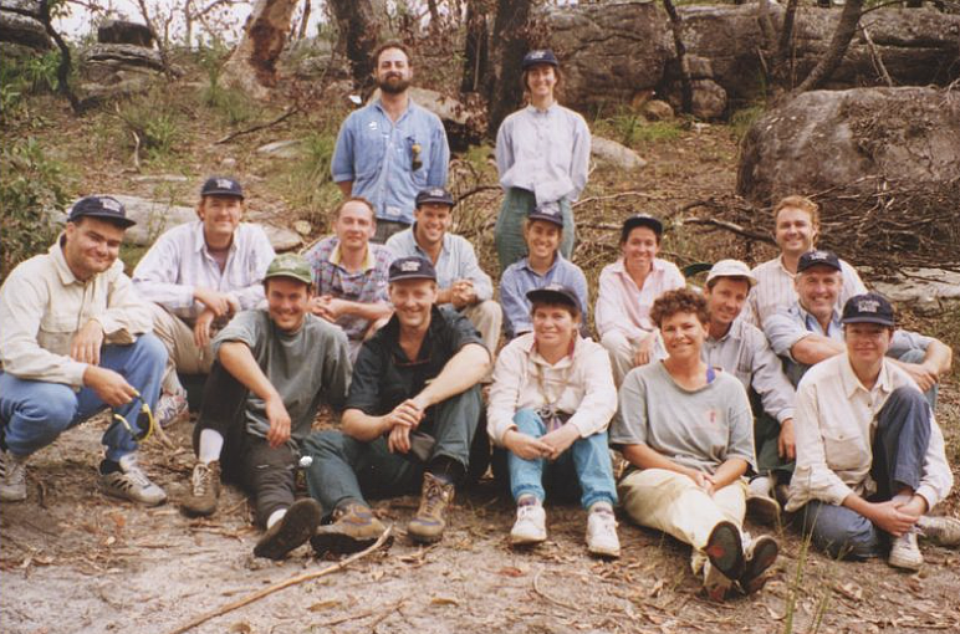
ICDA and BoardPro partnership unlocks digital governance tools for not-for-profits nationwide
Posted on 10 Dec 2025
Adele Stowe-Lindner, Executive Director, Community Directors The Institute of Community Directors…
Posted on 21 Aug 2024
By Matthew Schulz, journalist, Institute of Community Directors Australia

As the not-for-profit sector’s “Fix Fundraising” campaign to untangle confusing rules extends into its seventh year, Charities Minister Andrew Leigh has written to laggard states urging them to act on their promise to repair a patchwork system costing charities millions of dollars.

In a welcome address to public servants, sector leaders and regulators attending the Australian Charities and Not-for-profits Commission’s (ACNC’s) “regulators’ day”, Dr Leigh implied that the government was getting impatient with the glacial pace of reform.
Fix Fundraising advocate Geraldine Menere – who was listening to the speech – said the sector can’t wait much longer for reforms that are well overdue and sorely needed in a sector battling with high demand and a cost-of-living crisis.
Dr Leigh said he had written to regulators about the situation.
“I have written to those jurisdictions that are yet to legislate harmonised charitable fundraising laws to encourage them to do so as a matter of urgency”.
Existing laws and regulations mean that fundraisers must follow different rules and licensing systems in some states, which means a huge additional red tape burden.
Under the changes, states and territories are being asked to agree to a single set of fundraising principles, ensuring rules are harmonised across the country.
States and territories agreed to roll out implementation plans for reforms by July last year.
Only South Australia, Victoria and the Australian Capital Territory have implemented the principles in full.
In contrast, NSW failed to send a representative to the regulators’ day, and organisers planned to chase them for a written update. The Queensland regulator hinted its looming election could delay implementation further, while Western Australia is also expected to be affected by elections. After a promising start and introducing the legislation to its parliament, Tasmania has allowed reform in that state to stall following its recent election. The Northern Territory does not regulate fundraising.
“We’ve consistently made this a priority in our charity reform policies because we understand that operating budgets are tight and that wasted money means fewer services, less innovation, less training and less planning.”
The federal government’s impatience is partly driven by its stated goal of doubling giving in Australia by 2030.
With fundraising regulations having frustrated organisations for decades, Dr Leigh supported the “Fix Fundraising” campaign following its official launch in 2017. By 2019, Labor had added reforms to its election platform.
Speaking at length about the importance of the reforms to the government’s agenda and to the sector, Dr Leigh told the hundreds of government officers present that one estimate suggested the delay was costing Australian charities $1 million every month in additional compliance costs.
“We’ve consistently made this a priority in our charity reform policies because we understand that operating budgets are tight and that wasted money means fewer services, less innovation, less training and less planning.”
The issue was highlighted in the recent Productivity Commission inquiry into philanthropy, and in the Royal Commission into National Natural Disaster Arrangements following the 2019–2020 bushfires in which “the organic outpouring of generosity from Australian donors collided with a fundraising regulatory environment that was inconsistent from state to state, often not fit for purpose, and poorly understood by the public”.
Dr Leigh said he would scrutinise implementation plans that have been supplied “with enthusiasm”. He stressed that the change “costs nothing and it puts money back directly into the pockets of resource-strapped charities”.
“If Australia is to reach the goal of doubling giving by 2030, we need to create a regulatory environment that supports donors to give freely – without doubts, second guessing or remorse.”
Read Dr Leigh’s speech in full | Justice Connect's Geraldine Menere outlines the current state of play

Posted on 10 Dec 2025
Adele Stowe-Lindner, Executive Director, Community Directors The Institute of Community Directors…

Posted on 10 Dec 2025
The Australia Institute has called on the federal government to force Australian businesses to be…

Posted on 10 Dec 2025
Economic empowerment is essential to enabling recovery, restoring agency and preventing future…
Posted on 10 Dec 2025
A long-time advocate for rough sleepers in northern New South Wales has been named her state’s…

Posted on 10 Dec 2025
What a year 2025 has been, particularly at a national level where the Parliament and politics as we…

Posted on 10 Dec 2025
Anyone working in an organisation knows it: meetings follow one after another at a frantic pace. On…

Posted on 10 Dec 2025
As a qualified yoga instructor who learned the practice in her hometown of Mumbai, Ruhee Meghani…

Posted on 10 Dec 2025
Community Directors trainer Jon Staley knows from first-hand experience the cost of ignoring…

Posted on 10 Dec 2025
Stressed, overwhelmed, exhausted… if you’re on a not-for-profit board and these words sound…

Posted on 10 Dec 2025
The Institute of Community Directors Australia trains over 22,000 people each year, which gives us…

Posted on 09 Dec 2025
The late Sir Vincent Fairfax is remembered as a business leader, a chairman of AMP, and an active…

Posted on 08 Dec 2025
A pioneering welfare effort that helps solo mums into self-employment, a First Nations-led impact…